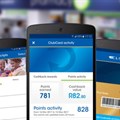The role of mobile in building brand loyalty

The latest FNB/BER Consumer Confidence Index showed a sharp decline as fewer consumers expected their household finances to improve in the next 12 months. At the same time, the World Bank recently slashed South Africa's economic growth outlook from 1.1% to a meagre 0.6%. Faced with customers that have less to spend, brands are investing time and resources into building strong and attractive loyalty programmes that help them retain existing customers.
Research by Bain & Company found that increasing customer retention by only 5% led to an increase in profits of between 25-95%. The cost of acquiring customers is also discouragingly high: according to the Harvard Business Review, it costs between five and 25 times as much to acquire a customer as it does to retain one.
Loyalty programmes play a significant role in South African shoppers’ purchasing habits: the latest Truth Loyalty White Paper found that 79% of South African consumers in 2017 use at least one loyalty programme, an increase of 8% over 2016. A closer look at the data reveals some interesting insights into what drives loyalty programme participation and, by effect, brand loyalty.
Keep it simple, stupid
Customer experience emerged as the top consideration for South African loyalty members: simplicity and ease-of-use were the highest-rated considerations in the Truth report. This is consistent with international trends: in a study of more than 19,000 North American consumers, programme enjoyment was one of three top-rated factors contributing to customer satisfaction with the loyalty programme.
The Bond Loyalty Report 2016 further found that 57% of North American shoppers would like to engage with loyalty programmes via a mobile device. This is partly driven by how new tech solutions are offering better customer experiences: mobile loyalty apps that allow payment and loyalty earn-and-burn, with opportunities for geo-located surprise-and-delight rewards creating powerful customer affinity.
A good example is coffee store chain Vida e Caffe, which took fifth place in the 'Top 10 Easiest Programmes To Use' category, joining industry leaders such as Clicks ClubCard and Pick n Pay Smart Shopper. What distinguishes Vida’s loyalty offering from many others is its mobile app. Members can pay via a linked card, by redeeming their earned points, a combination of the two, or even send a digital gift to a friend. The combination of ease of use, frictionless payment, gamification, and the social element of sharing loyalty value with friends and family combine to powerful effect.
Mobile makes it easier to burn
Without loyalty value being spent – what is colloquially termed loyalty “burn” – brands will struggle to foster brand affinity. The Bond Brand Loyalty report found that members who don’t redeem their loyalty value are 2.3 times more likely to defect to another loyalty programme than those who have redeemed in the past 12 months. Loyalty market leaders such as eBucks ascribe much of their success to the strength of their partner network, and how many opportunities they offer members to spend loyalty value at a range of strategic partners. As a result, eBucks proudly sports a spend-to-earn ratio of 86%, far outpacing the industry standard which currently sits at around 60%.
Discovery Vitality, another top-tier loyalty programme, outperforms other loyalty programmes in many respects despite a relatively smaller member base. Part of Vitality’s allure is how the programme rewards non-transactional behaviour – for example, successfully completing certain fitness goals – and then connects its members with lifestyle partners consistent with the programme’s focus on healthy living. Vitality has in many respects become a daily habit/lifestyle partner to its members, driving strong brand affinity.
Brands should also consider the youth when developing loyalty programmes: loyalty use among under-25s has increased from 53% in 2015 to 67% in 2017. This mobile-savvy age group has less disposable income, so loyalty programmes that go beyond pure transactional value and focus on engagement – especially via mobile – perform best.
If customer data is the new oil, mobile is the drill
Personalisation has become the holy grail of brand communication. By replacing the broad sweeping generalisation of traditional demographic-based customer segmentation with highly accurate data-driven customer profiles of one, brands are able to introduce timely offers and personalised brand communication at an individual level.
A study by global brand consultancy Wunderman found that 79% of consumers want brands to demonstrate that they fully understand them before they're willing to consider purchasing.
This is where mobile really comes to the fore: the amount of behavioural data generated via frequent mobile use far outstrips that of card-based loyalty systems.
Once brands understand their members better at an individual level, they are able to introduce tailored offers that can bring inactive members back into the fold, or incentivise active members to engage with the programme at a deeper level.
This may make it attractive to think card-based loyalty has no place, but it’s not really the case. There will always be a market for card-based loyalty, partly because old habits die hard but also because of the aspirational value of displaying a higher-tier loyalty card at the point of purchase.
Mobile enriches the loyalty experience by creating a bridge between the familiar card-based interaction and the rich personalisation, social, and gamification elements offered by app-based smartphone interactions and USSD-driven feature phone.
About Nicholas Bednall
Nicholas Bednall is the chief marketing officer at wiGroup.Related
Digital footprints not as reliable as believed, warns new marketing study 3 Apr 2025 Coca-Cola revives share a coke campaign for 2025 27 Mar 2025 Facebook agrees to halt targeted ads for UK user after legal challenge 26 Mar 2025 What’s holding businesses back from mastering personalisation? 26 Mar 2025 Social media's impact: Driving business strategies from marketing to ROI 18 Mar 2025 Discovery Insure's Vitality Car Rating: Determines second-hand cars' true condition and value 17 Feb 2025






































